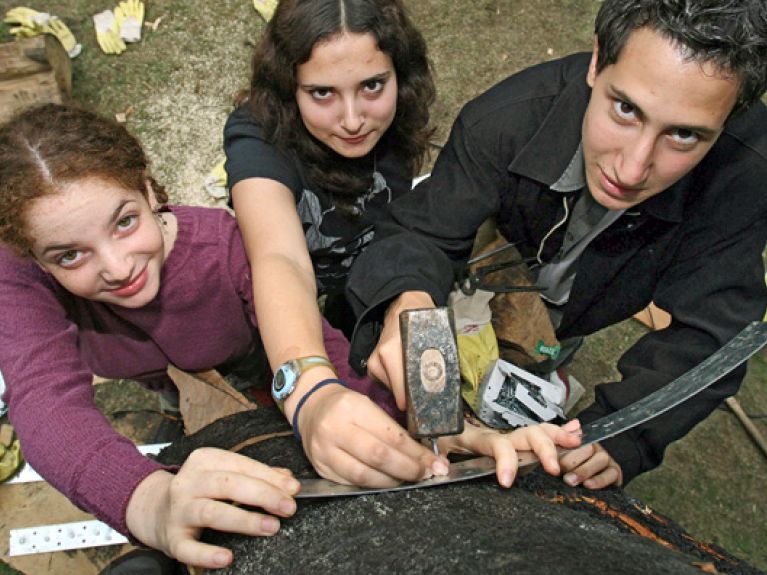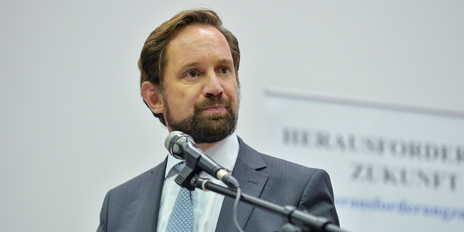Religious issues also in view
Freedom, justice, solidarity – these are the pillars of the Konrad Adenauer Foundation’s work in Israel.

Through its namesake, the Konrad Adenauer Foundation, affiliated with the Christian Democratic Union of Germany (CDU), has the longest connection to Israel of any German political foundation. To this heritage it attaches the greatest importance. In 1952 the Federal Chancellor Konrad Adenauer and the Israeli Prime Minister David Ben-Gurion created the basis for the reconciliation and future partnership of the Federal Republic of Germany and Israel with the Luxembourg Agreement (also called the Reparation Agreement). In 1965, then, the two countries finally resumed diplomatic relations.
The Foundation, with its headquarters in Jerusalem, has been active in Israel since 1982. Freedom, justice and solidarity are the fundamental principles of its work. Its manifold projects have several goals: to deepen bi-lateral relations, in which the European dimension is increasingly important; to strengthen democracy and the rule of law in Israel; and to foster peaceful co-existence between Israel and its neighbours.
In its projects, the Konrad Adenauer-Foundation cooperates in partnership with state institutions, political parties, organizations of civil society and selected elites.
The Foundation is guided by the belief, growing out of historical experience, that the advantages of democracy, freedom, market economy and peaceful co-existence make possible a promising future for the region. It is in this spirit that the Foundation meets the new challenges that have arisen since the “Arab Spring” at the beginning of 2011.
4 questions for Office Supervisor Michael Borchard

What are the key themes of the Foundation’s work in 2017?
In 2017 we are especially interested in Israel’s regional environment. How will relations with Jordan develop? What role will the relationship with Turkey play? Are new regional alliances in the making? Secondly, surveys show that the EU is recovering from the negative picture Israelis have had of it. We are very keen to show new prospects and to make clear how much both Israel and the EU are dependent on one another in a rapidly changing world.
How does your work differ from that of the other institutions?
Because of its values, the Adenauer Foundation looks rather more clearly at religious issues. How is the co-existence of religion and state working in Israel? Are Israelis becoming more religious? How can dialogue help avoid an escalation of the religious implications of the conflict? We are also the only political foundation that maintains a close formal partnership with Yad Vashem. And our specific advantage is that we benefit from the popularity of the Chancellor in Israel.
Who would you like to reach with your work? And how well have you succeeded in this?
It’s important to us not to “preach to the converted”; that is, to address not only those in Israel who are already completely convinced of the two-state solution. That’s why we also target parties such as Likud or the Shas Party, even if this isn’t always so easy. Furthermore, beyond the conflict, we deliberately strengthen the dialogue amongst experts in Germany and Israel because, along with our histories, the common interests of our two countries are the second important pillar of our relationship.
What do you see as the greatest challenge for German-Israeli relations?
The younger generations are moving culturally apart. Surveys show that young people in Israel are becoming increasingly nationalist, militarist and religious – among other reasons, because of the threatening situation. They have inherited the trauma of their grandparents and are resolved never again to be victims. Young Germans are post-national, post-military and post-religious. What they hear from their “inherited trauma” is “Never again war!” These different narratives can be brought together only through even more encounters. Here, in spite of many initiatives, we could be still more ambitious.
© www.deutschland.de

